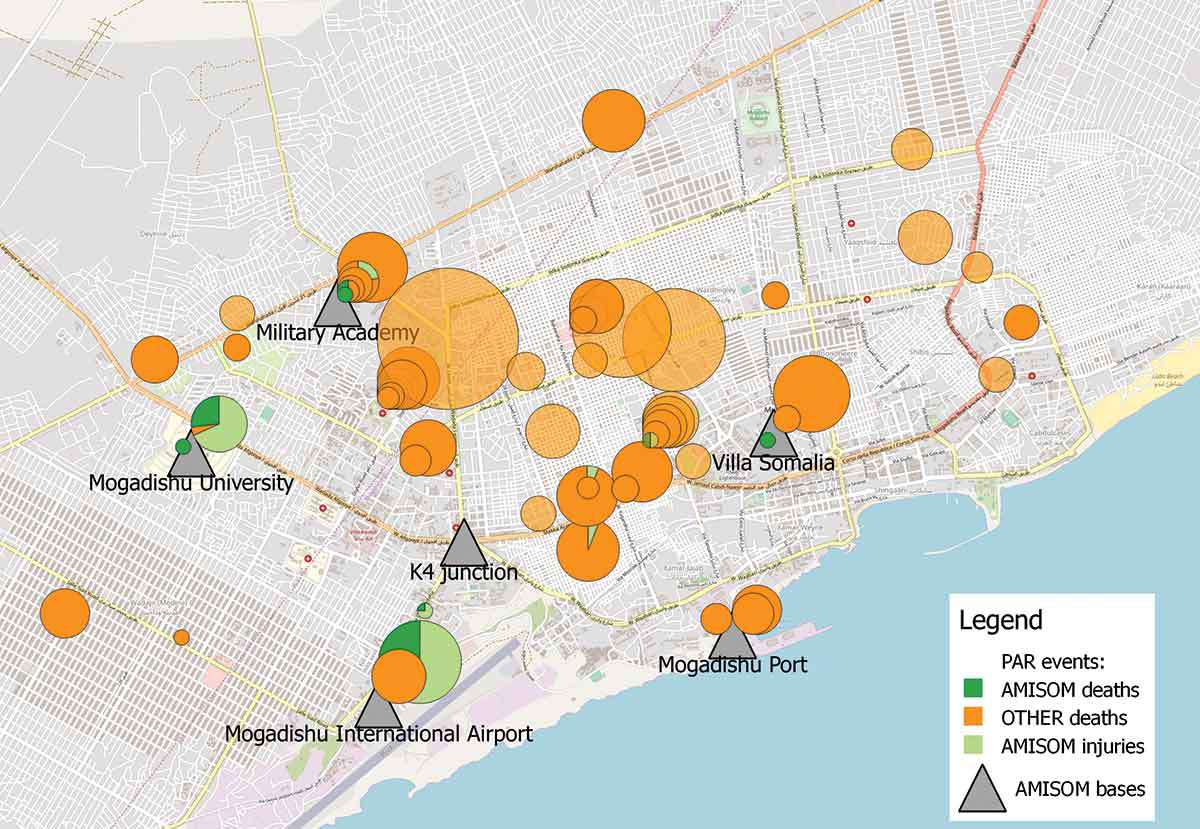In order to protect interim governments or facilitate humanitarian aid, peacekeeping operations are increasingly being deployed to high-threat environments without stable political agreements. In addition, many such operations are now based in capitals or major cities, whose urban environment poses a unique challenge to the incoming forces.
To study how attacks on peacekeepers deployed in an urban environment affect their ability to operate, Elliott School Professor of International Affairs Paul Williams analyzed data on 122 violent events that occurred to the African Union Mission to Somalia’s (AMISOM) deployment to Mogadishu from 2007 to 2009. AMISOM is the peace operation that has come under the most sustained urban attacks in the modern era, mainly from the group Harakat al-Shabaab, which opposed their protection of the Somali Transitional Federal Government (TFG).
As Williams showed, despite initial setbacks due to the attacks, AMISOM was able to adapt to the terrain and fulfill its mandate of protecting the TFG. However, future study is expected to illuminate how attacks on peacekeepers can further escalate violence. The full study is available via Third World Thematics.
Professor Williams’ research focuses on peace operations, emerging security threats, war and peace in Africa, and conflict resolution. He is also the Associate Director of the Security Policy Studies M.A. program at the Elliott School.


